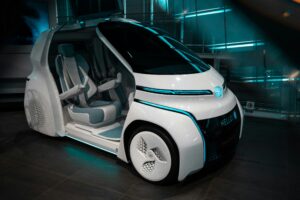Have you ever imagined a world where your morning coffee is delivered to your doorstep by a robot? Well, that future may not be too far off. With the rise of autonomous delivery robots, the way goods are transported is undergoing a significant transformation.
These self-driving robots, equipped with sensors and cameras, are designed to navigate sidewalks and cross streets safely to deliver packages to customers efficiently. Major companies like Amazon and FedEx have already started piloting these robots in select cities, with promising results.
According to a study by McKinsey & Company, autonomous delivery robots could potentially reduce delivery costs by 40% in urban areas. This cost-saving opportunity has garnered significant interest from businesses looking to optimize their delivery operations.
“We believe that autonomous delivery robots have the potential to revolutionize the last-mile delivery industry,” says Sarah Johnson, a logistics expert at Deloitte. “Their ability to operate 24/7 and adapt to changing traffic conditions makes them an attractive alternative to traditional delivery methods.”
As we move towards a future where robots play a more significant role in our daily lives, the implications for the workforce and society at large are worth considering. While autonomous delivery robots offer efficiency and convenience, they also raise questions about job displacement and privacy concerns. As we navigate this technological evolution, finding a balance between innovation and ethical considerations will be crucial.



